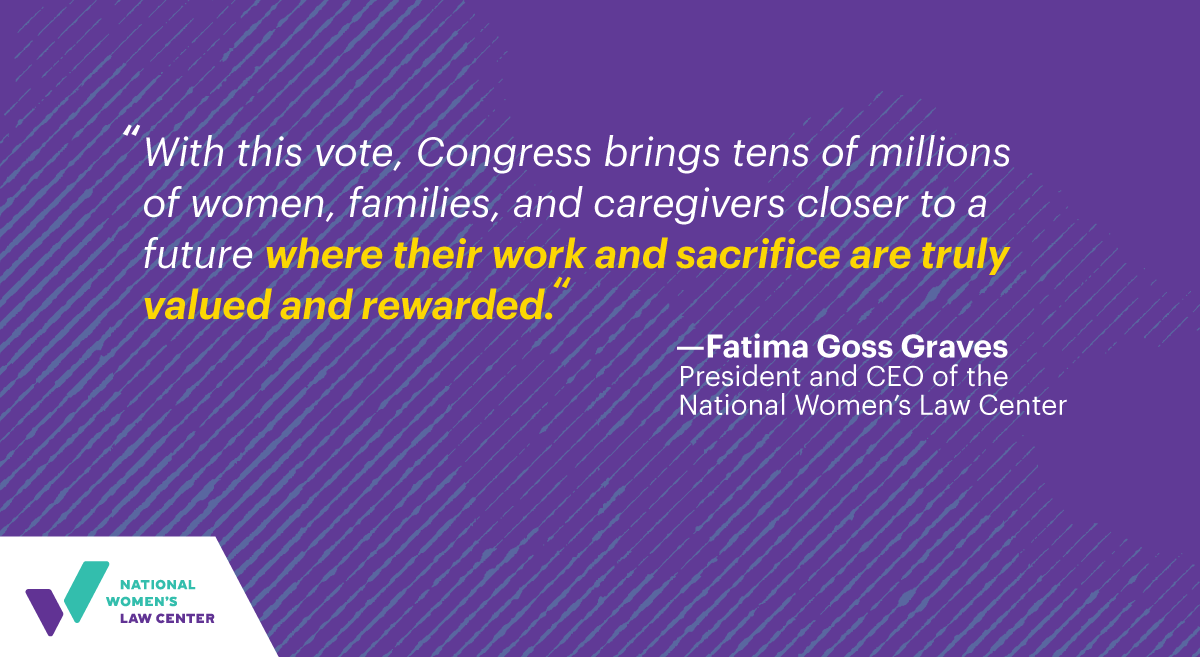Abortion rights, women of color, and LGBTQI+ people are under attack. Pledge to join us in fighting for gender justice.
National Women’s Law Center Responds to House Vote on Build Back Better Act

(Washington, D.C.) Today, the House of Representatives passed the Build Back Better Act with historic investments in women, families, and caregivers.
The following is a statement from Fatima Goss Graves, president and CEO of the National Women’s Law Center:
“With this vote, Congress brings tens of millions of women, families, and caregivers closer to a future where their work and sacrifice are truly valued and rewarded. The bill passed today includes historic investments in child care and home and community-based services, affordable housing, the establishment of universal pre-kindergarten, birthing justice, comprehensive paid family and medical leave, and the expanded Child Tax Credit–all paid for by making the ultra-wealthy and large corporations pay a fairer share in taxes–and long-overdue prescription drug pricing reform. This new future for women is generations in the making, and the Senate should immediately take action to make these life-changing investments in working families a reality.”
According to an analysis by the National Women’s Law Center:
- Women gained 57.3% of jobs added to the economy in October 2021, or 304,000, while men gained 227,000 jobs. Despite these gains, it would take nearly eight months of growth at October’s level to gain back the over 4.2 million jobs the economy has
lost since February 2020 - Since February 2020, the economy has experienced a net loss of over 4.2 million jobs; women account for 57.3% of those losses.
- Nearly 1 in 14 Black women ages 20 and over (7.0%) were unemployed in October 2021, down from 7.3% in September 2021. About 1 in 12 Black men ages 20 and over (8.3%) were unemployed in October 2021, up from 8.0% in September 2021
- Nearly 1 in 17 Latinas ages 20 and over (5.7%) were unemployed in October 2021, up from 5.6% in September 2021.1
According to an analysis from the National Women’s Law Center and The Center on Poverty & Social Policy
- Over the entire life course, access to affordable child care could increase the lifetime earnings for women with two children by about $94,000, which would lead to an increase of about $20,000 in private savings (contributions plus growth) and an additional $10,000 in Social Security benefits. It would also boost the collective lifetime earnings of a cohort of 1.3 million women by $130 billion
- For Black mothers in deep poverty, child care reform will result in a lifetime net increase in income of $108,000.





